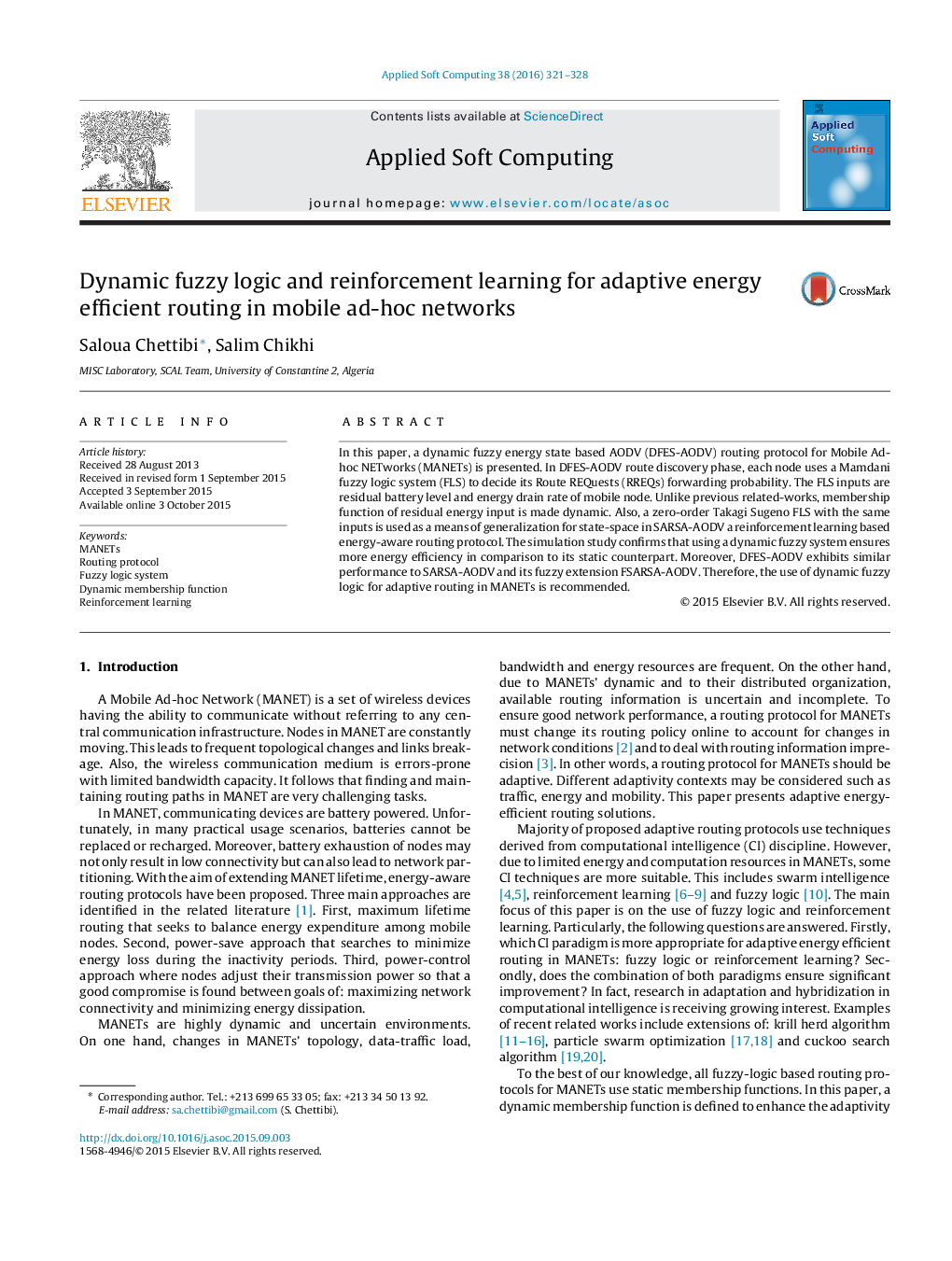| Article ID | Journal | Published Year | Pages | File Type |
|---|---|---|---|---|
| 494867 | Applied Soft Computing | 2016 | 8 Pages |
•To ensure good network performance, a routing protocol for MANETs must change its routing policy online to account for changes in network conditions and to deal with routing information imprecision.•The main focus of this paper is on the use of fuzzy logic and reinforcement learning.•A dynamic membership function is defined to enhance the adaptivity of legacy fuzzy logic systems.•A fuzzy extension of a reinforcement learning based routing protocol for MANETs is presented.•Dynamic fuzzy logic is more appropriate than reinforcement learning for adaptive energy aware routing in MANETs.
In this paper, a dynamic fuzzy energy state based AODV (DFES-AODV) routing protocol for Mobile Ad-hoc NETworks (MANETs) is presented. In DFES-AODV route discovery phase, each node uses a Mamdani fuzzy logic system (FLS) to decide its Route REQuests (RREQs) forwarding probability. The FLS inputs are residual battery level and energy drain rate of mobile node. Unlike previous related-works, membership function of residual energy input is made dynamic. Also, a zero-order Takagi Sugeno FLS with the same inputs is used as a means of generalization for state-space in SARSA-AODV a reinforcement learning based energy-aware routing protocol. The simulation study confirms that using a dynamic fuzzy system ensures more energy efficiency in comparison to its static counterpart. Moreover, DFES-AODV exhibits similar performance to SARSA-AODV and its fuzzy extension FSARSA-AODV. Therefore, the use of dynamic fuzzy logic for adaptive routing in MANETs is recommended.
Graphical abstractFigure optionsDownload full-size imageDownload as PowerPoint slide
